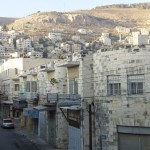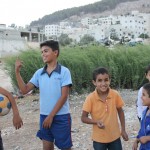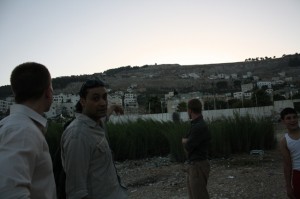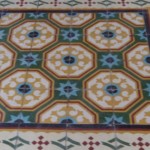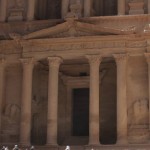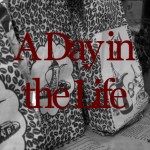
I spent the last three days eating delicious dinners with the Christian Peacemaker Team in Hebron, debating how social justice and action fits into Buddhist ideals while sipping tea, and smoking nargileh all wrapped up in a warm blanket. It restored my sapped energy.
Two weeks ago, I returned from a wonderfully hectic trip to Egypt and Jordan. Since then, I’ve found an apartment in Bethlehem, published a few of my former students’ videos, solidified bi-weekly Arabic lessons, set up meetings about jobs and volunteer work all over town and planned a trip to Zababdeh to learn about the olive harvest there. Today, though, was the first day I felt at home in Bethlehem.
I returned from Hebron around 10:30 in the morning. I waved from the taxi as I passed my friendly neighbor Ehmad, who works as a mechanic. I walked through my door, laden with a box of new dishes from the Hebron Pottery Factory, and immediately flipped on the water heater and downed a cup of sweet tea from a pitcher that I had made before I left for Hebron (Grandma’s Pennsylvania Dutch recipe: minus a few cups of sugar, plus a bit of fresh mint). I heated up a frozen pita on the stovetop while I chopped a tomato and an avocado for a salad. Ira Glass’s melodious voice accompanied my late breakfast.
After breakfast and This American Life, I put in a load of laundry and packed my bag for a walk around Bethlehem. My home for the next three months.
I took the longer, quieter route to the Nativity Church. On the way, I passed a video store that sells new releases for 5 shekels ($1.40, holy crap!). I bought Switch and a teeny-bopper movie I forget the name of. I zig zagged through the market, picked up a map at the Bethlehem Peace Center and ducked into the packed Nativity Church for a minute of touristy-holiness. Afterwards, I caught up on email at Christmas Lutheran Church’s community center. There, I was asked if I would play billiards on a young guys computer with him. I politely declined and tried not to be distracted by the techno chicken song that he and his crew put on repeat for the next 30 minutes. I also tried to hide my smile, because it was, admittedly, a hilarious techno chicken song.
I stopped at a small shop to buy a ras el abed (an addictive treat, like a s’more, with a horrendous name: slave’s head), and then I picked up some groceries:
Tahini
Pita
Pasta sauce
Rice and noodles
Lime scented hand lotion (strangely delicious smelling)
Canned pickles (mmmmmm), corn and mushrooms
Once at home, I warmed up a bowl of carrot stew and checked out some web pages I had saved about Sabeel, a Christian Palestinian organization that I will meet with tomorrow in Jerusalem. My apartment smelled like Arabic coffee spiced with cardamom, fresh mint and laundry detergent.
What it was about this day that made me feel so at home, I’m not exactly sure, but here I am and I feel lucky.
